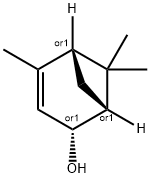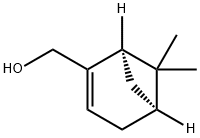T9960930
2,4,4-Trimethyl-1-pentene , >98.0%(GC) , 107-39-1
Synonym(s):
α-Diisobutylene;2,4,4-Trimethyl-1-pentene + 2,4,4-Trimethyl-2-pentene;2,4,4-Trimethylpentene;Diisobutylene
CAS NO.:107-39-1
Empirical Formula: C8H16
Molecular Weight: 112.21
MDL number: MFCD00008855
EINECS: 203-486-4
Update time: 2022-07-08
PRODUCT Properties
| Melting point: | -101 °C |
| Boiling point: | 101-102 °C (lit.) |
| Density | 0.708 g/mL at 25 °C (lit.) |
| vapor density | >3.8 (vs air) |
| vapor pressure | 83 mmHg ( 37.7 °C) |
| refractive index | n |
| Flash point: | 21 °F |
| storage temp. | 2-8°C |
| form | Liquid |
| color | Clear colorless |
| Specific Gravity | 0.708 |
| Odor | Like gasoline. |
| explosive limit | 4.8% |
| Water Solubility | Miscible with acetone. Partially soluble in methanol, diethyl ether, benzene, chloroform. Immiscible with water. |
| BRN | 1098309 |
| Stability: | Stable. Highly flammable. Vapour may flow over surfaces to a distant source of ignition. Incompatible with oxidizing agents. |
| CAS DataBase Reference | 107-39-1(CAS DataBase Reference) |
| NIST Chemistry Reference | 1-Pentene, 2,4,4-trimethyl-(107-39-1) |
| EPA Substance Registry System | 1-Pentene, 2,4,4-trimethyl- (107-39-1) |
Description and Uses
Organic synthesis; motor-fuel synthesis, particularly isooctane; peroxide reactions.
Safety
| Symbol(GHS) |   GHS02,GHS09 |
| Signal word | Danger |
| Hazard statements | H225-H411 |
| Precautionary statements | P210-P233-P240-P241-P242-P273 |
| Hazard Codes | F,N |
| Risk Statements | 11-51/53 |
| Safety Statements | 9-16-29-33-61 |
| RIDADR | UN 2050 3/PG 2 |
| WGK Germany | 2 |
| RTECS | SB2717300 |
| Autoignition Temperature | 736 °F |
| TSCA | Yes |
| HazardClass | 3 |
| PackingGroup | II |
| HS Code | 29012990 |
| Hazardous Substances Data | 107-39-1(Hazardous Substances Data) |



